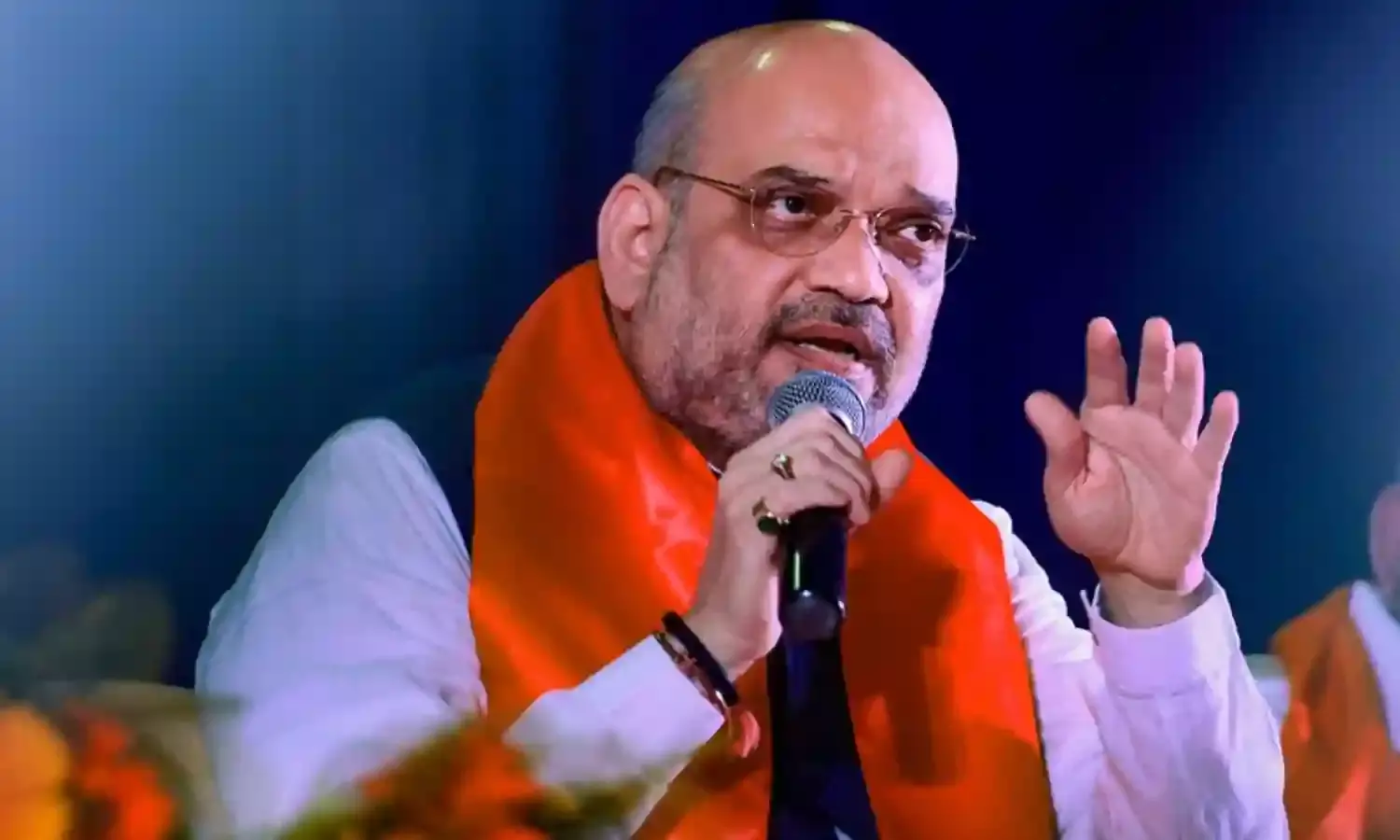Opposition Shouldn’t Laugh Off Amit Shah’s ‘50 Year Rule’ Assertion
In just four years the BJP has put democracy in peril;

Bharatiya Janata Party president Amit Shah has a habit of making tall claims before every election, but doesn't always get it right. While he correctly predicted the BJP would win 300 seats in the Uttar Pradesh assembly in 2017, his guesses were off the mark in the Bihar and Gujarat assembly polls.
Last week at a meeting of the BJP’s national executive, Shah made another tall claim. That after its 2019 victory the BJP would remain invincible for the next 50 years. While some members of the opposition saw his statement as reeking of the arrogance of power, others simply laughed it off.
Seldom in the history of democratic government do we find a single party or coalition ruling for more than 50 years. India has never seen it; the invincible looking Congress party was toppled within 30 years of its rule as the party tried to use state institutions to curb opposition. Moreover, until Manmohan Singh’s prime ministership no single PM, party or coalition had ruled for two consecutive full terms since 1984.
In the United States, since Clinton was elected president in 1993 the opposition party has captured the White House every eight years. In Pakistan, people have voted a relatively new political party led by Imran Khan to power.
In Malaysia, however, ruling coalition alliance Barisan Nasional ruled the country for 61 years — until it was defeated by opposition parties last June.
With Malaysia offering the only recent example of power monopoly for decades, should Amit Shah’s statement be brushed off? Well, not quite.
Malaysia shows what results from rule by one party or coalition for an extended period of time. During the prolonged single coalition rule there, multiple elections were marred by allegations of large scale voter fraud. Even opposition members or their families were jailed on corruption or sedition charges.
Responding to a question on the Malaysian political situation in 2015, then US President Barack Obama had said, ‘Democracy is not just elections. It’s how open, transparent and accountable government is between elections. It’s important that free speech, freedom of press, an independent judiciary, the right to assemble peacefully — all those rights are observed to make democracy work.’
A democratically elected government using public and private institutions to consolidate an authoritarian form of power — this accurately describes even the current four-year-old National Democratic Alliance government.
Since its rise the BJP has ensured that institutions like the Reserve Bank of India, the Central Bureau of Investigation, the Election Commission of India, the Supreme Court, not to mention universities and the press, have lost not only their independence but their credibility.
Last January the four senior most judges of the Supreme Court after the chief justice came out in public to voice their concern, saying that democracy was in peril and asking people to save it. Their allegation was the arbitrary assignment of important cases in the Supreme Court — including those linked to politicians.
The RBI was rendered powerless with PM Modi thrusting his own disastrous decisions like demonetisation down the public’s throat. A hitherto powerful and independent election commission too has been seen overtly favoring the ruling BJP many times — whether in choosing or announcing election dates, or taking action for violations of the election code of conduct. Its refusal to conduct a thorough investigation into the ‘malfunction’ of electronic voting machines — which time and again worked in favour of the BJP alone — has damaged the EC’s reputation. A whopping 51 opposition parties have shown lack of faith in EVMs and demanded a return to paper ballots.
The media has by and large tended to look like either a BJP sympathiser or a BJP spokesman, taking on opposition parties and leaders instead of questioning the ruling party. On the other hand PM Modi has not conducted a single open press conference since being sworn in.
All this has happened in just over four years. Imagine if the BJP gets a chance to further tighten its control over these institutions. It will make them so powerful that it would be difficult to upstage them. The BJP’s incessant pitch for simultaneous state and central elections fuels further concern.
Indian democracy offers a robust structure of checks and balances. But a second stint in 2019 would give the BJP so much power that it may damage these institutions beyond redemption, giving itself a free hand to fully implement its divisive agenda.
Amit Shah’s statement should actually sound alarm bells to the opposition in general and the Congress in particular, which mustn’t simply rely on feelings of anti-incumbency against the BJP. It should accelerate the process of finalising new alliances quickly.
Even if the BJP doesn't win a majority but comes close, it will capture power by hook or crook, just as it did in Manipur and Goa. Consequently, it will be on its way to holding power for decades, if not half a century.
(The views expressed are the authors own and not those of The Citizen)

